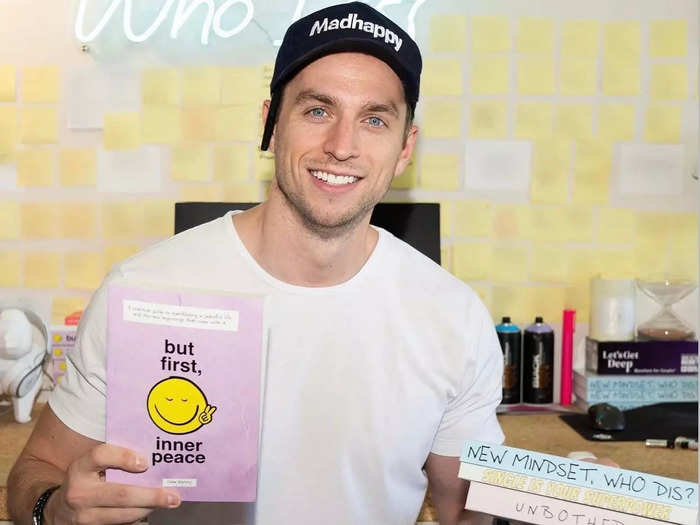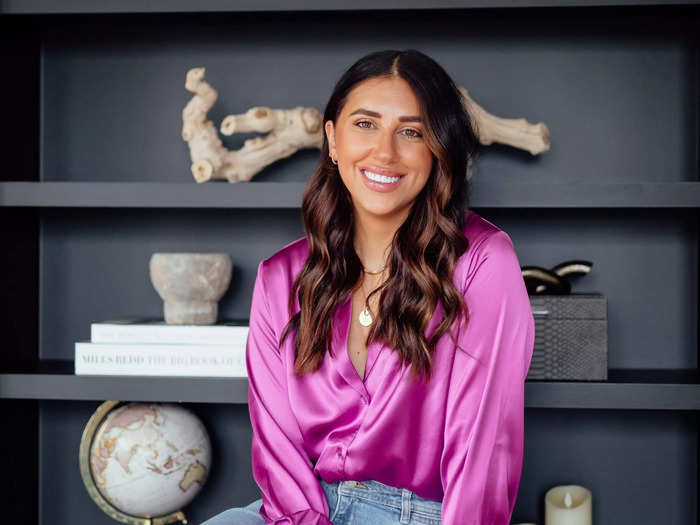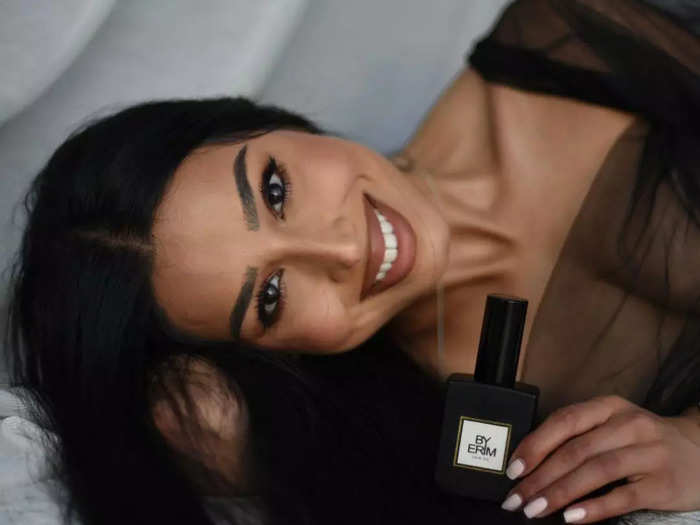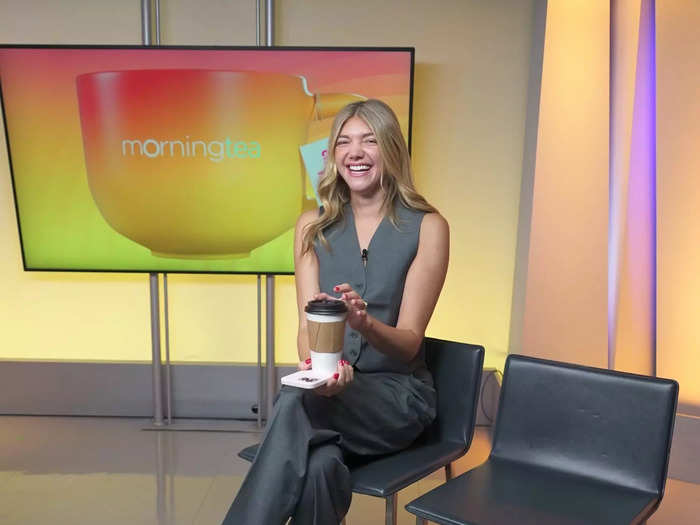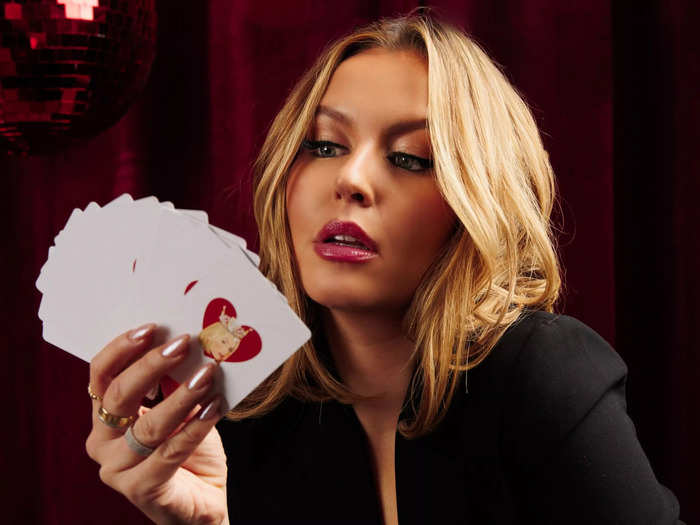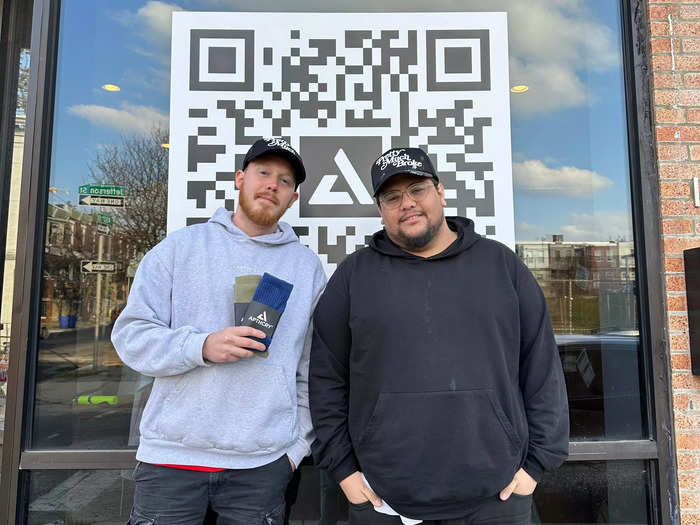Content creators are turning their online brands into lucrative businesses.graphic: Insider; photos: courtesy of Kaur, Kenny, Yoo, and Kerrigan
- Many content creators have used their success to launch brands, turning followers into customers.
- Some created products based on their content, while others launched funding initiatives.
Liah Yoo started filming YouTube videos in 2012 with no intention of becoming an entrepreneur. Instead, she aimed to share her love for the beauty industry and her acne journey with followers while balancing a job in the corporate world.
"I was interacting with millions of different people as a content creator," Yoo, who lived in South Korea at the time, said. "I had the ability to connect with my potential consumer on a daily basis."
Three years later, she took her content creation side hustle full-time, building intimate relationships with her followers in ways corporate companies or large businesses can't because of their size, she said. Those connections allowed her to discover a void in the beauty market and, in 2017, she launched the cruelty-free vegan brand KraveBeauty. Her business booked eight figures in sales in 2021, documents verified by Insider show, and Yoo continues her content creation to fuel her success, she said.
Yoo is one of many creators who have used their achievements to launch brands in recent years, turning loyal followers into loyal customers. Some created products while others launched funding initiatives.
Creating "pushed me naturally into the direction" of launching a brand, Yoo said. While it's a natural progression for some, not all creator brands are successful. For instance, Arielle Charnas' Something Navy, a clothing brand that evolved from her fashion blog, is struggling, and Tati Westbrook closed her beauty brand in 2021 after two years, Insider previously reported.
To understand how to successfully make the leap, Insider spoke with Yoo and six additional creators who've built brands beyond fan merchandise. Here's their advice on leveraging an online profile to find and launch new business opportunities.
Case Kenny
Case Kenny turned his social-media platform into a podcast and a wellness brand. courtesy of Kenny
Name: Case Kenny
Business venture: Kenny is the founder of the New Mindset, Who Dis brand, which includes a podcast, mindfulness journals, and a candle collection. Kenny also partnered with the card company What Do You Meme for a card game on mindfulness called "Better Than Yesterday." His businesses under the umbrella company 216 Ventures.
Success metrics: Kenny's company brought in more than $3.2 million in sales in 2021, documents verified by Insider show.
Platforms: Instagram, TikTok, Spotify
Advice on creating an ecosystem:
Known for posting inspirational and motivational quotes on social media, Kenny said he found success by building multiple branches of his mindfulness brand. He's expanded from his initial model of posting social quotes into an online presence, podcast, and products. Each of these branches goes hand in hand, he said.
"It's essential that you create an ecosystem where everything is connected," Kenny said. "Test a subject matter on one channel and if it does well, you test it some more. Then if it does really well, you build a product and you sell it."
One aspect of the ecosystem will lead followers to the next, he added.
Dede Raad
Dede Raad is a content creator and investor who founded the fashion-and-travel blog Dress Up Buttercup. courtesy of Raad
Name: Dede Raad
Business venture: In 2015, Raad launched Dress Up Buttercup, a fashion-and-travel blog. In November 2022, she expanded her brand to include Build Up Buttercup, a "Shark Tank"-like pitch competition that helps other entrepreneurs launch their own businesses.
Success metrics: Dress Up Buttercup generated seven figures in revenue in 2021, documents verified by Insider show. In 2022, through Build Up Buttercup, Raad invested in two new businesses, where she's now an equity owner.
Platforms: Instagram, TikTok
Advice on finding business opportunities that fit:
As a blogger and content creator who'd found success in the digital space, Raad was eager to experiment with another business avenue. However, as a mom with a full-time content-creation job, she knew launching a new product wasn't the right fit. Instead, she decided on investing.
"Find the niche that you're passionate about so you won't get burned out," she said. "People can see right through you if you're not taking it seriously."
She shared Build Up Buttercup, a four-episode pitch competition, on her social-media platforms in November 2022.
"My community is the reason why I do what I do," Raad said. In an effort to help her followers and fellow entrepreneurs find success, she both invested in their brands and connected them with other investors through the series. "We're all in it together to support these small businesses and see what good ideas are out there," she said.
Erim Kaur
Erim Kaur, the founder of ByErim. courtesy of Kaur
Name: Erim Kaur
Business venture: ByErim, a hair-care brand selling oils, shampoo, and other hair tools that Kaur launched in 2019.
Success metrics: ByErim brought in more than $700,000 in net sales in 2021 and has sold more than $3 million worth of products in the company's lifetime.
Platforms: Instagram, TikTok, Youtube
Advice on turning rejection into redirection:
Kaur had a difficult time getting manufacturers to work with her in the initial phases of her business development, she said. Some didn't take her seriously because of her age and thought she was incapable of running a product-based company without supervision, Kaur said. Others required too many orders for her to afford, she said. But those rejections were crucial parts of her journey.
"One manufacturer said to me, 'You need to work backward. Where do you want to be, what's your goal with the business? Start there,'" Kaur said.
After that conversation, Kaur determined her long-term goals, properly registered the company, obtained all the necessary certifications, and completed lab testing on her products. Those steps were vital in the future success of her brand, she said.
Katie Sands
Katie Sands turned her online presence into an on-air career. courtesy of Sands
Name: Katie Sands
Business venture: Sands grew her social presence by posting pictures of her personal style and costumes from her theatre performances. She expanded that into freelance on-air opportunities, including a full-time role with Cheddar News.
Success metrics: Sands brought in five figures for a 12-segment contract as a freelance broadcaster covering style trends in June 2022, which Insider verified with documentation.
Platforms: Instagram, TikTok
Advice on constantly pitching yourself for new opportunities:
You have to hustle in the TV industry, Sands said.
"I'm still constantly pitching myself to different producers," she said. Sands suggested finding producers of the shows you like on LinkedIn and sending them your reel, ideas you have for segments, and reasons you'd be the best for the role.
It's through constantly pitching herself that Sands landed a contract role in July with Cheddar News. She joined the team as a summer correspondent to cover pop culture, fashion, and what was trending on social platforms.
Then, based on the success of the show, the network brought her on as a full-time anchor.
"I'm learning so much that I didn't know before about the market and finance," Sands said. "It just goes to show that, if you are really open to new opportunities and to learning a new skill, social media can help you open the door for anything."
Liah Yoo
Liah Yoo is the founder of KraveBeauty. courtesy of Yoo
Name: Liah Yoo
Business venture: KraveBeauty, a skincare brand founded in 2017.
Success metrics: KraveBeauty hit eight figures in 2021 sales, documents verified by Insider show.
Platforms: YouTube, Instagram, TikTok
Advice on determining your next product:
As a content creator, Yoo said to use your everyday interactions with followers to determine what's missing in the market.
"A lot of the time, early-stage startups and entrepreneurs who don't have the content-creation experience spend the longest time finding that product-market fit," Yoo said. "For content creators, we've already done all the market research: We know what the viewers want, what their lifestyle is, and what their pain points are."
What's more, content creators understand what kind of messaging resonates with consumers. That knowledge shouldn't get lost once you build a brand, Yoo said. That genuine connection and trust will keep followers coming back as paying customers.
Serena Kerrigan
Serena Kerrigan launched her card game "LFD" in 2020. courtesy of Kerrigan
Name: Serena Kerrigan
Business venture: Kerrigan launched her card game, "Let's Fucking Date," in September 2020.
Success metrics: The card game booked six figures in sales in both 2021 and 2022, and has surpassed $1 million in total sales since launch, according to documents shared with Insider. Kerrigan also launched a line with the earring company Studs in November and multiple items sold out, Kerrigan's team told Insider.
Platforms: Instagram, TikTok
Advice on fostering a community:
Kerrigan said her growth can be attributed to her close relationships with her followers.
"I create very little distance between me and my followers," she said, adding that reposting customer testimonials in her Instagram stories, replying to comments, holding meet-and-greets, and chatting in her Geneva account — a social-media platform for group chats — helps foster those relationships.
Kerrigan believes communication is a two-way street and that content creators need to remember this when they're asking followers to spend their money.
"If you don't care about your community, then how are they going to care enough about you to buy a product?" Kerrigan said. "There are a million card games, but people feel gravitated to buy my game because of me and the brand."
Seth Fowler
Seth Fowler, left, and Osman Cueto, the cofounders of Apthcry. courtesy of Fowler
Name: Seth Fowler
Business venture: Seth Fowler cofounded Apthcry, a sock company, with Osman Cueto in July 2020.
Success metrics: The brand sold more than $700,000 in socks from January to November 2022, documents show, and Fowler expects to hit $1 million in sales by the end of 2022.
Platforms: YouTube, Instagram, TikTok
Advice on keeping online content interesting for customers:
Fowler started his career as a sneaker commentator online, where he'd discuss new releases and his own collection. That naturally transitioned into a sock brand when he decided to launch a product, but he still maintains his influencing career, he said.
"The biggest thing I've realized is that, unfortunately, in any niche that's dependent on a product, there's going to be ebbs and flows in the popularity," Fowler said.
To address those inevitable challenges, he's finding ways to keep sneakers interesting — like designing and testing new video and promotional strategies on YouTube and TikTok. For example, he's focusing on YouTube Shorts more than long-form content, where he initially grew his following.
"A regular video will do 60,000 to 100,000 views, but a short will get 4 million in a week," he said. "That's been a big part of the current strategy."
Fowler suggested consistently putting out content to increase your following, even if social media alone isn't paying the bills right away.

